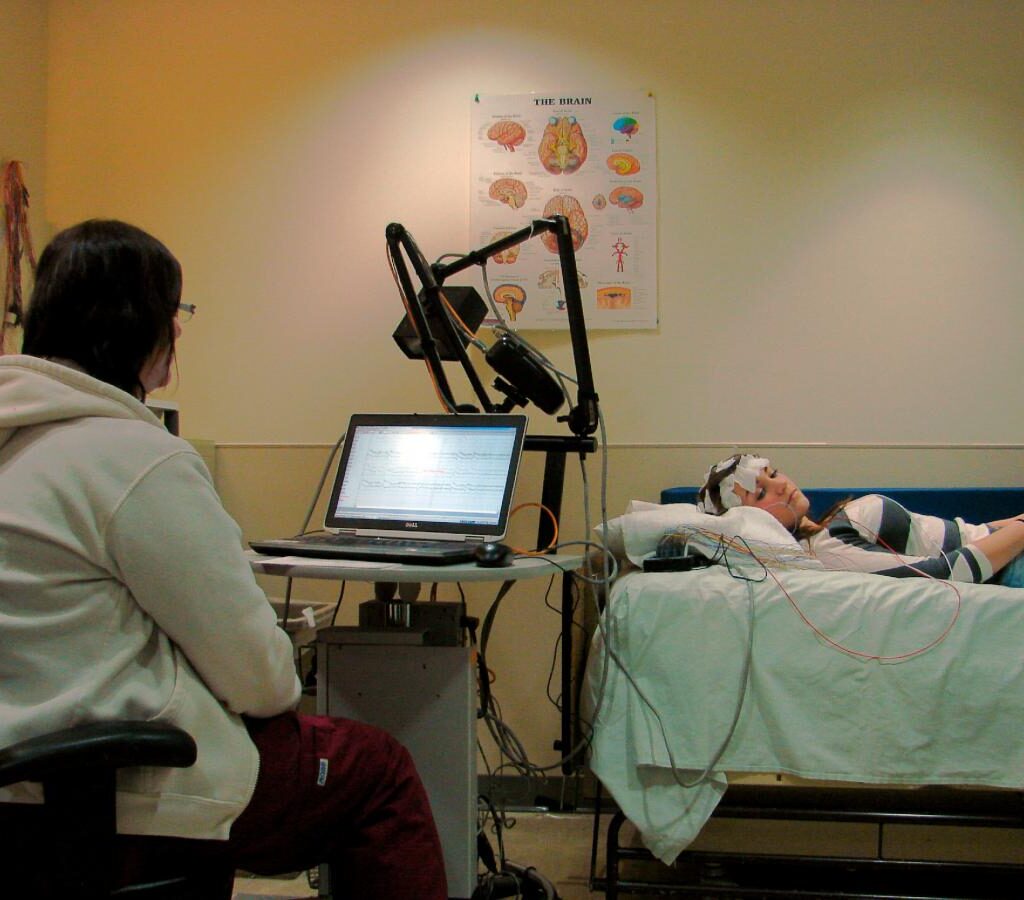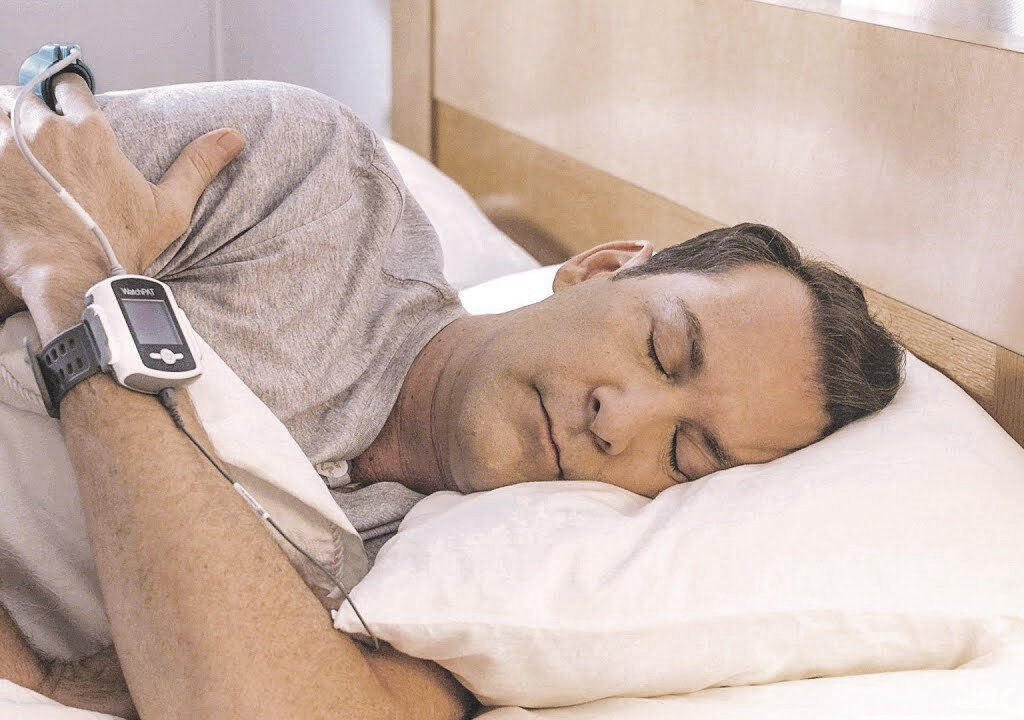Sleep apnea affects millions of Australians, causing repeated breathing interruptions during sleep. These disruptions can occur hundreds of times per night, leading to serious health complications:
- Cardiovascular disease
- Type 2 diabetes
- Depression
- Chronic fatigue
- Increased risk of accidents
Residents experiencing sleep apnea symptoms in Melbourne have access to comprehensive testing options through bulk-billed sleep studies. These government-funded diagnostic tests provide essential health screenings without direct costs to eligible patients.
A bulk-billed sleep study serves as a critical first step in diagnosing and treating sleep apnea. The test monitors various physiological parameters during sleep, including:

- Breathing patterns
- Blood oxygen levels
- Heart rate
- Brain activity
- Body movements
This comprehensive guide explores the qualification criteria for bulk-billed sleep studies in Melbourne, helping readers understand their eligibility and access pathways to essential sleep disorder testing. From Medicare requirements to specialist referrals, discover how to access these vital health services through the Australian healthcare system.
Government-funded sleep apnea testing Melbourne is an important healthcare initiative in Melbourne, allowing individuals to access necessary diagnostic services without financial burden. The availability of bulk-billed sleep studies through Medicare shows Australia’s commitment to addressing sleep disorders and their impact on public health.
In addition to Melbourne, similar bulk-billed sleep study options are available in Sydney. For those in Perth or Brisbane, there are also bulk-billed sleep study services and sleep study options respectively.
Understanding Sleep Studies
Sleep studies are used to diagnose sleep disorders by closely monitoring different bodily functions while you sleep. There are two main ways to carry out these important tests: in a sleep lab with professionals or at home without supervision.
Read more at: Sleep Study Sydney What to Expect from Home and Clinic Testing
Laboratory Polysomnography (PSG)
A polysomnography study takes place in a specialised sleep laboratory under direct supervision of trained technicians. This gold-standard diagnostic method monitors:
- Brain wave activity (EEG)
- Eye movements
- Heart rate and rhythm
- Blood oxygen levels
- Breathing patterns
- Body position
- Muscle activity

Home-Based Sleep Studies
Home sleep studies offer a simplified version of polysomnography conducted in the patient’s natural sleep environment. These studies typically measure:
- Airflow through the nose and mouth
- Chest and abdominal movements
- Blood oxygen saturation
- Heart rate
- Body position
Comparing Both Methods
The choice between these two methods depends on various factors, including the suspected sleep disorder’s complexity, patient preference, and medical history. Home sleep studies prove particularly effective for diagnosing obstructive sleep apnea in patients with a high pre-test probability of the condition.
Benefits of Home-Based Studies:
- Natural sleep environment
- Lower cost
- Immediate availability
- Greater convenience
- Reduced anxiety
Limitations of Home-Based Studies:
- Fewer monitoring channels
- No direct technical supervision
- Potential data loss
- Less suitable for complex sleep disorders
Benefits of Laboratory PSG:
- Comprehensive data collection
- Professional monitoring
- Immediate technical support
- Suitable for complex cases
Limitations of Laboratory PSG:
- Higher costs
- Unfamiliar environment
- Limited availability
- Travel requirements
Air Liquide Healthcare – Your Partner in Sleep Solutions
Air Liquide Healthcare is Australia’s largest provider of home sleep apnea studies and therapy, offering comprehensive sleep health solutions through its network of trusted brands including SNORE Australia, Healthy Sleep Solutions, Mycroft, Complete Care, and Sleep Disorder Australia (SDCA).
The organisation delivers an integrative approach to sleep health management through:
- Home Sleep Studies: Non-invasive diagnostic testing in the comfort of patients’ homes
- CPAP Therapy Programs: Personalised treatment initiation and titration
- Ongoing Support: Regular check-ups and therapy guidance
- Equipment Solutions: Access to latest CPAP technology and accessories
The patient pathway at Air Liquide Healthcare follows a structured, evidence-based approach:
- Initial Assessment: Comprehensive evaluation of sleep health symptoms
- Diagnostic Testing: Home-based sleep study using advanced monitoring equipment
- Clinical Review: Analysis of results by qualified sleep physicians
- Treatment Planning: Development of personalised therapy strategies
- Implementation: CPAP therapy initiation with expert guidance
- Follow-up Care: Regular monitoring and adjustment of treatment plans
Through strategic partnerships with leading CPAP equipment manufacturers, Air Liquide Healthcare provides access to state-of-the-art sleep therapy devices. These collaborations ensure patients receive:
- Latest technological innovations in CPAP equipment
- Range of mask options to suit individual needs
- Regular equipment maintenance and updates
- Expert technical support
The organisation’s commitment to quality care extends beyond equipment provision. A dedicated team of sleep health professionals works alongside patients throughout their treatment journey, ensuring optimal outcomes through personalised support and guidance.
Air Liquide Healthcare’s extensive network spans across Melbourne, making professional sleep health services readily accessible to local communities. The organisation’s bulk-billing arrangements with Medicare help eligible patients access necessary diagnostic services without out-of-pocket expenses. Read more about accessible at https://careers.uw.edu/resources/accessibility-inclusion-action-in-medical-education/
Qualifying for a Bulk-Billed Sleep Study in Melbourne
Accessing a bulk-billed sleep study requires meeting specific clinical criteria established by healthcare providers. Medical professionals use three primary assessment tools to determine eligibility:
1. Epworth Sleepiness Scale (ESS)
- Measures daytime sleepiness through a questionnaire
- Patients rate their likelihood of falling asleep during daily activities
- Scores range from 0-24, with scores above 10 indicating excessive daytime sleepiness
2. OSA50 Questionnaire
- Evaluates four key risk factors:
- Obesity (waist circumference)
- Snoring intensity
- Age over 50
- Observed pauses in breathing during sleep
- A score of 5 or higher suggests increased risk of sleep apnea
3. STOP-Bang Score
- Assesses eight clinical attributes:
- Snoring
- Tiredness during the day
- Observed breathing pauses
- High blood Pressure
- Body mass index
- Age
- Neck circumference
- Gender
- Scores of 3 or higher indicate potential sleep apnea risk
Healthcare providers combine these assessment results with physical examinations and medical history to determine eligibility for bulk-billed sleep studies. Patients displaying multiple risk factors through these screening tools typically qualify for Medicare-covered testing.
For those located outside Melbourne, similar bulk-billed sleep studies are available in other Australian cities such as Hobart, Adelaide, and Canberra.
The Role of Medicare in Sleep Apnea Testing
Medicare plays a vital role in making sleep apnea testing accessible to eligible Australians. Under the Medicare Benefits Schedule (MBS), patients who meet specific clinical criteria can access bulk-billed sleep studies without out-of-pocket expenses.
Medicare Coverage Requirements:
- Valid referral from a qualified medical practitioner
- Documented symptoms indicating sleep apnea
- High-risk scores on standardised screening tools
- Previous unsuccessful sleep study attempts
Medicare typically covers:
- Initial diagnostic sleep studies
- Follow-up studies when medically necessary
- Interpretation of results by qualified sleep specialists
For patients requiring CPAP therapy, private health insurance offers additional support options. Many health funds include CPAP equipment coverage in their extras packages, with benefits varying between providers: Click here to find more about equipment.
Private Health Insurance Benefits:
- Partial or full coverage of CPAP machines
- Regular equipment maintenance
- Mask replacements
- Ongoing therapy supplies
The level of coverage depends on:
- Individual policy terms
- Waiting periods
- Annual claim limits
- Choice of health fund
Private health insurers might require documentation from sleep specialists to approve CPAP therapy claims. Patients should contact their health fund directly to understand specific coverage details and claiming procedures.
Getting Referrals for a Sleep Specialist: What You Need to Know
The path to obtaining a sleep study begins with securing a referral from a qualified healthcare provider. Here’s a detailed look at the referral process:
Initial Consultation with GP
- Schedule an appointment with a general practitioner
- Discuss sleep-related symptoms and concerns
- Complete necessary screening questionnaires
- Undergo basic health assessments
Specialist Referral Requirements
- Valid referral letter from GP or specialist
- Detailed medical history
- Current symptoms and their duration
- Results from any previous sleep-related tests
Types of Referring Healthcare Providers
- General practitioners
- ENT specialists
- Respiratory physicians
- Cardiologists
- Neurologists
Required Documentation
- Medicare card
- Private health insurance details (if applicable)
- Previous medical records related to sleep issues
- List of current medications
The referral remains valid for 12 months from the date of issue. Some sleep specialists might require additional documentation or preliminary tests before accepting new patients. Private specialists often maintain shorter waiting lists compared to public hospital sleep clinics, though costs may vary significantly between providers.
A sleep specialist consultation typically involves a comprehensive assessment of sleep patterns, lifestyle factors, and medical history to determine the most appropriate type of sleep study for each patient’s specific situation.
Conclusion
Sleep apnea’s effects go beyond disrupted sleep—it affects cardiovascular health, mental wellbeing, and daily functioning. The journey to diagnosis and treatment begins with recognising potential symptoms:
- Loud snoring
- Daytime fatigue
- Morning headaches
- Difficulty concentrating
- Mood changes
Anyone experiencing these symptoms should take action by consulting a GP. The comprehensive support system in Melbourne—from initial consultations to specialist referrals and bulk-billed testing—creates an accessible pathway to better sleep health.
Early diagnosis through government-funded testing programs can lead to effective treatment, improved quality of life, and prevention of serious health complications. The first step toward better sleep health begins with a simple conversation with a healthcare provider.

